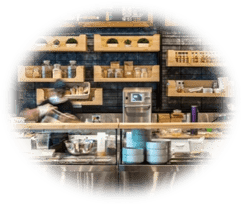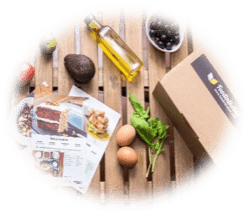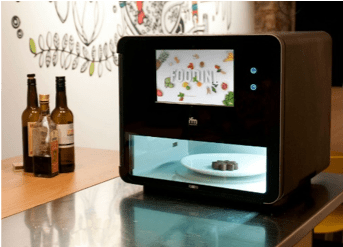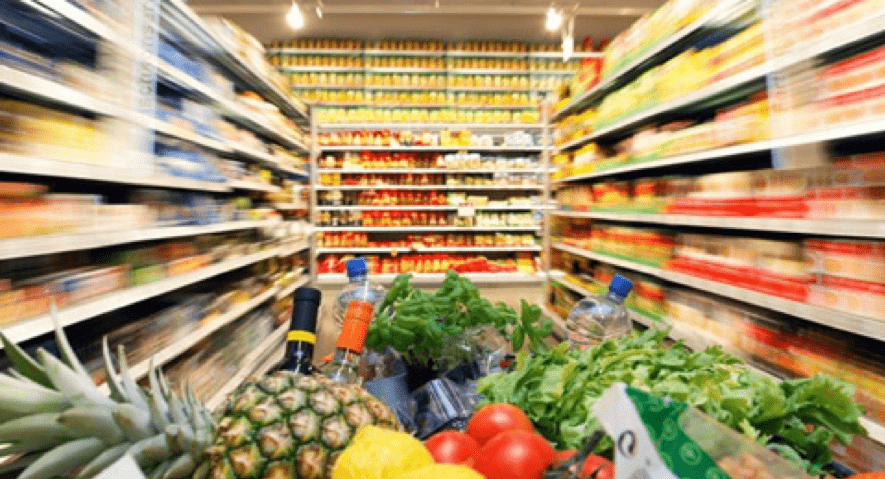The food sector: Startups and trends to consider for its transformation
In 2018 food production amounted to 100 billion euros, which makes it the most important industrial sector in Spain. Today, the sector is undergoing far sweeping changes, impacted by key trends such as the need for more guarantees and control, the search for greater convenience in shopping, changes in consumer diet habits, increasing awareness concerning sustainability and greater personalization made possible thanks to technology.
Over recent months we have seen how several breakthrough initiatives that address these trends have become more widespread and are having a considerable impact on the food sector.
GUARANTEES: QUALITY AND DEMONSTRABLE TRACEABILITY
The food scandals of recent years (mad cows included) and health concerns have placed food quality and traceability to the fore.
Consumers want to ensure that the products they consume are the best possible quality and that producers and brands are fulfilling their promises. They therefore need to validate and see guarantees that manufacturers of the food they purchase and eat actually deliver on their promises.
Technology increasingly offers more and more solutions that are totally cost competitive. Some solutions enable users to access on their smartphone nutritional and quality-traceability information about the food items they want to buy.
This is the case of startups that use big-data, algorithms and blockchain to provide solutions for the production and distribution industry as well as for consumers. For example, Safe Traces, Smart With Foodand Connecting Food. The case of Connecting Food is especially interesting in that it manages to integrate the entire food chain of a sector or vertical. We already spoke about them a few months ago, as you can see in this other entry. In the case of Smart With Food they focus on the moment of purchase. In other words, consumers can use the app to view all the nutritional properties and a list of the ingredients of products before they decide whether to purchase them or not.
PURCHASE: PROXIMITY AND CUSTOMISED CONVENIENCE
Proximity and a satisfying user or purchasing experience are clear drivers for food distribution. Proof of this is the development of various online platforms, as well as innovations in Amazon or Corte Inglés in this field. Some notable contributions in this area are platforms such as Proximity, Pickadeli as well as FoodInTheBox and Farmidable.

Pickadeli is an application associated with different restaurants in Madrid. The restaurants prepare a 5 euro menu that users can drop in and pick up at any time without queuing up in the restaurant.

The second application is Food in The Box, targeted at consumers who are tired of shopping more food than they end up consuming and who want to eat a balanced diet. The FoodInTheBox proposal is very simple. They feature different boxes on their website with various product combinations and consumers choose the one they like most, which is then conveniently delivered to their home.
 The mission of Farmidable is to promote fair trade and guarantee a greater profit margin for producers whilst providing ethically conscious consumers with fresh local and quality produce, at lower prices. Its app is a platform that links farmers, small producers and consumers, with no intermediaries, and aims to facilitate the consumption of fresh, natural and proximity produce.
The mission of Farmidable is to promote fair trade and guarantee a greater profit margin for producers whilst providing ethically conscious consumers with fresh local and quality produce, at lower prices. Its app is a platform that links farmers, small producers and consumers, with no intermediaries, and aims to facilitate the consumption of fresh, natural and proximity produce.
HEALTHY MENUS: VEGGIE DIET & NEW HEALTHY INGREDIENTS
The growing concern with a healthy diet has boosted the consumption of new foods and ingredients. It has also been the springboard for the development of vegan products.
Amai Proteins and Nutrition Innovation are two companies that produce substitutes to refined white sugar. The former was founded in Israel and produces sweet proteins. Nutrition Innovation Grouphas its own sugar brand, Nucane. It is made 100% from sugar cane and has low GI levels. Nucane Life was a finalist in the “Best ingredient” category at the World Food Innovation Awards 2019.
Furthermore, following a clear market trend, there are a great deal of new vegan offerings. Prominent among these are:
Foods For Tomorrow. Its star product is Heura, a soy-based compound with a texture resembling that of chicken that is already available in distribution and the HORECA channel.
Triton Algae Innovations Harnessing the nutritional properties of seaweed, this company markets marine-based food products. Its lead product, currently still in development, promotes certain proteins (among which is Osteopontin) in order to improve baby milk formula.
Agrasys The creators of Tritordeum, a 100% natural, environmentally friendly cereal that is not genetically modified and is grown by local producers in Spain, Italy and southern Portugal.
Another alternative to meat proteins are insects. Yes, insects. In 2018 a change was introduced in European regulation allowing the commercial distribution of insects as food. So now, Carrefour sells products made from insects in some of its stores as well as online. Among its offerings, produced by the French firm JImini’s, one can find chocolate bars made with cricket or buffalo worm powder and hot chili.
One prominent new offering in the world of beverages is Ocean 52, a brand launched in Spain in 2018 by a group of former managers in the food sector in conjunction with Environmental and Marine experts. This health drink features spring water along with minerals extracted from the ocean, such as magnesium, which helps to reduce fatigue. What’s more, the brand doesn’t use plastics and promises to allocate 52 percent of its annual profits to raising awareness around the sea and protecting it.
SOCIAL RESPONSIBILITY: REDUCING FOOD WASTAGE AND EMISSIONS
Consumers are becoming more and more concerned about issues related to environmental impact. Food wastage is one of these problems. According to some sources, 7.7 million tons of food are thrown away every year in Spain alone. Working towards coming up with solutions to this are two Spanish startups.
Wasteless is a solution targeted at food retailers. It uses Machine Learning to automatically label lower prices on food items as they approach their expiry date. This offers advantages to both retailers and consumers whereby the latter can enter the app and check out the lower prices.
Too Good To Go is an application that enables restaurants to leave food that hasn’t been sold at lunch time at a discount price in a Surprise packwhich the consumer can pick up at the restaurant. This is food that hasn’t been sold at the end of the day and is in perfect condition.
Also very closely related to the environment is the need to produce food sustainably. This trend has given rise to Clean Meat , lab-grown meat. The process is simple. A sample of cells are extracted from the animal and these are then cultured. The end product is animal meat that is 100% free of antibiotics. This initiative aims to produce eco-friendly meat that is both environmentally friendly and doesn’t harm animals. The project has been in development for some years now and is currently becoming more cost effective. If this technology eventually becomes widespread it will mark a sweeping breakthrough in meat production.
CUISINE: TECHNOLOGICAL PERSONALISATION

Technology is a driver for many innovations in the market but in some cases it is not only the driver but also constitutes the innovation itself. Such is the case of Foodini. Created by Natural Machines, Foodini is a 3D printer, primarily targeted at restauranteers and chefs, to give a more artistic touch to their presentations.
 Also worth mentioning is the inauguration of Creator Restaurant last June in San Francisco. Why was this inauguration so important? Because this restaurant is a Momentum Machines initiative, which grew from a startup set up in 2012 that has manufactured the first machine that cooks hamburgers. The machine is a robot that makes burgers from start to finish, adding the different ingredients and cooking the meat, all for 6 dollars a burger.
Also worth mentioning is the inauguration of Creator Restaurant last June in San Francisco. Why was this inauguration so important? Because this restaurant is a Momentum Machines initiative, which grew from a startup set up in 2012 that has manufactured the first machine that cooks hamburgers. The machine is a robot that makes burgers from start to finish, adding the different ingredients and cooking the meat, all for 6 dollars a burger.
At Connociam we have extensive expertise in working with different companies in the food and beverages sector since 2010. We help institutions, national and multinational firms, startups and technology centers to define and implement customer-centric strategies to come up with solutions to business challenges (strategy, marketing and sales), as well as with digital and technological innovation. In many cases we have helped to connect several organisations and companies and to get them to work together in an ecosystem or Open Innovation, pooling their competencies so as to more effectively address innovation challenges.

